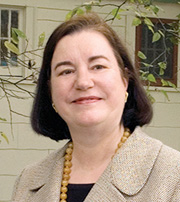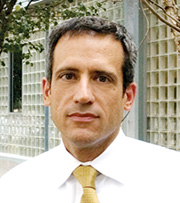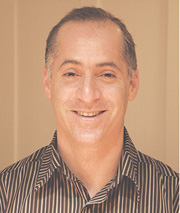When Insurance Is Not Enough
A controversial new model in medical private practice called concierge care, which places an additional fee on patients, arrives in Houston. One popular local physician who treats a number of individuals in the community has signed on.
 Are you seeking a health plan that offers same-day medical appointments, comprehensive physical examinations, extended-length office visits, and immediate access to your favorite physician? All this can be yours, provided you have health insurance and $1,500 for an annual fee, if you have been a patient of some local physicians, including one prominent physician who serves the gay, lesbian, bisexual, and transgender community.
Are you seeking a health plan that offers same-day medical appointments, comprehensive physical examinations, extended-length office visits, and immediate access to your favorite physician? All this can be yours, provided you have health insurance and $1,500 for an annual fee, if you have been a patient of some local physicians, including one prominent physician who serves the gay, lesbian, bisexual, and transgender community.
“Concierge care,” a fairly new model for private medical practices in which patients pay an additional out-of-pocket fee in order to retain access, has recently confronted some patients in the community. In a letter that patients of Shannon Schrader, M.D., received in August, Schrader, one of the best-known and admired HIV specialists in Houston, announced that he had signed onto a concierge-care program. “Providing health care that is focused on you, and fits within the demands of your busy life, is my goal,” Schrader wrote in the letter. “In order to have the time required to provide this level of personalized care, I will need to limit the size of my practice.” The benefits to patients, the letter continued, include “same or next day appointments that start on time and last as long as needed” and the ability “to reach me directly 24 hours a day, seven days a week via my cell phone or pager.”

The “concierge care” concept was devised in 1996 by a group of internists in Seattle to meet the needs of wealthy patients seeking the best in specialized medical services. Since then an increasing number of physicians across the nation have been converting to this model. In transitioning his practice, which took effect in mid-November, Schrader is working with an industry leader, Boca Raton, Florida-based MDVIP.
Schrader is not the only Houston-area physician to adopt the concierge-care model. In a front-page September 2 article, the Houston Chronicle reported on several other local doctors who have made or are considering the same move. “[Nationwide] the number of concierge doctors still is small—probably about 300, an amount a federal study found too tiny to worry about yet—but the movement is slowly building momentum,” Chronicle reporter Todd Ackerman wrote. “Initially concentrated on the coasts, it has infiltrated a majority of states.”
Still, the concierge-care trend has come under Congressional scrutiny. “Concierge care is like a country club for the rich,” California representative Pete Stark said at a 2004 congressional hearing into the practice . “The danger is that if a large number of doctors choose to open up these types of practices, the health-care system will become even more inequitable than it is today.”
As costs associated with maintaining a medical practice continue to increase and reimbursements from public and private insurers decease, physicians have been increasingly vocal about how unprofitable the medical profession has become.

“This concept has been around for a while, and depending on your perspective, it makes a great deal of sense,” says Thomas Giordano, M.D., the medical director of Thomas Street Health Center and an assistant professor at Baylor School of Medicine. “From the point of view of the individual patient who’s able to enroll, it’s a good thing. Patients who can pay receive care that is much more attentive to the niceties of medicine. However, from a societal perspective it’s not. It exposes a significant weakness within the current system.”
Giordano, who practices in the public health-care system, concurs with many other providers who fault the inherently inequitable health-care delivery system in this country. “Our entire health-care system is discriminatory based on resources,” he says. “Those with more money get better health care. This isn’t specific to HIV. It occurs throughout medicine.”
MDVIP, which works with 190 physicians located in 19 states and Washington, D.C., has capitalized on this structural flaw
within American health care by offering its services to accomplished but weary practitioners. The firm promises prospective physicians “financial and professional freedom,” according to company marketing materials. At the same time, the MDVIP model guarantees patients “individualized service with a focus on wellness and preventive care.”
In addition to Schrader, the MDVIP website lists two other affiliated physicians in the Houston area: John A. Burpeau, M.D., and William A. Lent, M.D. (As the Chronicle reported in September, Burpeau explained at a meeting of his patients about his switch to concierge-care, “Under managed care, medical practice is now run like a mill. I’m having to see more and more patients and spend less and less time with them.”)
OutSmart attempted to obtain an interview with Schrader and offered him opportunities to respond to questions. He declined to comment through an MDVIP representative but indicated that he will consent to an interview with the magazine in the future.

In a recent interview on the CNBC network, Darin Englehadt, MDVIP president, described services that participating physicians provide as “comprehensive preventive care much akin to what you would find in an executive physical program.” He likened doctors to “wellness coaches as opposed to just treaters of illness.”
This medical model sounds perfect if one is treating retired corporate executives in Palm Beach, but does it translate well to individuals negotiating HIV disease? According to a brief statement issued on Schrader’s behalf by MDVIP, “Dr. Schrader’s new practice will focus on prevention and early detection which will provide better results and improved outcomes to the healthcare system by reducing hospitalizations and lengths of stay.”
This boilerplate language misses the mark. Long-established standards of care for HIV already focus on close virologic, immunologic, and systemic monitoring. It is unclear what will be discovered by “early detection” since many patients are already HIV-positive. Major tenets of wellness and HIV haven’t changed since the dawn of effective treatment: adherence to an effective medication regimen, regular monitoring and doctor visits, avoidance of activities that harm the immune system, and stress management. HIV-positive patients don’t need a wellness coach. They need more physicians who are adept at managing HIV and its constellation of serious medical complications.
No one can fault Schrader for deciding to refocus his practice after 15 years of compassionate GLBT-friendly care that, unlike most doctors, also includes a large cadre of transgender patients, concur the numerous observers contacted for this article. As the first HIV practitioner in the community to make a move to a concierge-care model, Schrader is in the unenviable position of serving as a lightning rod for the larger discussion of how health care is delivered. Physicians certainly have the right to determine what kind of practice they want to operate, just as any business owner does. However, when a DeBakey-like figure suddenly makes such a dramatic change, the frailties of our current HIV treatment infrastructure are glaringly exposed.
Despite Houston’s status as a world-class medical center, there are currently only about a dozen highly experienced local HIV doctors. Of these, only a handful has provided treatment over the last decade, experience that is critical when treating patients with AIDS.
This limited pool of clinicians is of specific concern to Paul Simmons, RN, the executive director of the Center for AIDS in Houston. In discussing concierge care, Simmons says, “It is very clear that we have a finite number of experienced HIV practitioners in Houston. If for any reason we lose one of them, our medical infrastructure is not set up to absorb that loss well.”
He continues, “A potential shortage exists in the private sector. We haven’t had a new dedicated HIV private practice open here in quite some time. Also, as a rule, any HIV practice will have a more acute population, many of whom will be accessing a public subsidy resulting in inadequate levels of reimbursement.”
“Private practice HIV care is very tough,” points out Thomas Street’s Giordano. “There aren’t a lot of procedures [which generate revenue], and reimbursements for office visits are not good. As a result, these physicians face an economic struggle. I’m not surprised a move [to concierge care] is happening.”
This view is shared by Katy Caldwell, the executive director of Legacy Community Health Services. “More and more physicians are doing this,” Caldwell says. “It’s a national trend. For the last five years, we have seen a significant shrinkage in the industry as providers become less willing to see patients with certain types of [insurance] payors.” Commenting on the dearth of new doctors interested in treating HIV, she said, “Lots of experienced physicians are no longer practicing here. There’s a lot less brainpower focused on HIV treatment within this community.”
As a provider with an emphasis on primary care for the gay, lesbian, bisexual, and transgender community, Legacy also deals with specific issues of tolerance as well as knowledge when hiring experienced, sensitive medical staff. “It’s a challenge to recruit physicians who are HIV specialists,” Caldwell adds. “Legacy has a diverse patient population with complex medical issues. Some physicians love this type of medicine, but this kind of practice doesn’t appeal to everyone.”
Indeed, one local physician, who requested anonymity, explains that fewer medical-school students in the United States are pursuing HIV care than in the past, further reducing the number of skilled doctors working in the field.
The GLBT community once again finds itself in the middle of a classic clash between care and resources. HIV incidence continues to increase, infected individuals have more medical complications associated with their increased longevity, and fewer qualified doctors are available to address their needs.
What does the arrival of the concierge-care model portend for medical care here? Is there a future crisis looming for HIV-oriented private practice? Will patients be shifted to entirely different modes of medical care? Due to the dynamic nature of HIV disease, patients may be required to engage a variety of HIV specialists over time, medical observers say. “At different stages of HIV disease, patients may need to see physicians with specific expertise,” Legacy’s Caldwell says. “This further limits the choices patients have.”
“There’s a paradox here,” Simmons of the Center for AIDS says. “For individuals who receive their care through the public sector, those resources seem adequate. These institutions are staffed by medical personnel from universities, providing some of the best physicians in this community.” Giordano of Thomas Street, which is part
of the Harris County Hospital District, agrees. “Practitioners at publicly funded facilities like Thomas Street can match those of any private practice in the country.”
The primary difference between public and private systems is not the quality of medical expertise that a patient obtains, but the manner and timeliness in which that care is delivered. “When patients have resources, the care they receive is delivered in a much more efficient manner,” Giordano says. “These patients with private insurance have greater access to specialists and needed procedures.”
Insured or not, more than 5,000 of Schrader’s patients, many of whom do not have HIV, are now looking for another physician. One of those patients, Irma Copeland, acutely feels Schrader’s departure. The 52-year-old mother of three discovered she was HIV positive in 1996 and has seen Schrader since 2001.
“I will never forget my first meeting with Shannon,” Copeland says. “I knew right away that he was completely awesome. He answered every question I had, and I never felt rushed during my appointments. Shannon was so much more than a doctor. He became a friend, someone who always had the time to talk with me. Since Shannon is so knowledgeable about HIV, I felt completely comfortable with him.”
Copeland, like all patients in the practice, received the August letter notifying her of the impending switch to concierge care. “I was completely lost, totally devastated,” she says. “I believed that I was going to lose my access to medical care because I didn’t have the money that
was required.”
Like many patients in the practice,
Copeland is concerned about finding a new medical provider. “I was contacted by a representative from MDVIP who
suggested another doctor, one I had
moved from to see Shannon. I’m not sure what happens now. Being over 50 and having HIV for almost 15 years, it’s
terrible to start all over again. I have one last appointment coming up. I’ll be incredibly sad.”
Other patients have opted to stay with Schrader. “I decided to keep seeing him,” Jerry Boice, a patient for 14 years, says. “He knows me and my medical history. When I’ve faced challenging situations, Shannon has always provided excellent care and extensive follow-up.”
Boice did not hesitate to make the switch to the MDVIP-administered plan. “I actually signed up during an office visit.” Boice plans to renew annually. “This gives me increased accessibility, makes it easy to get an appointment, and I know Shannon will spend more time with me at each visit,” Boice says. In fact, two September meetings originally scheduled at a local hotel for Schrader’s patients to learn about the concierge-care plan were canceled when the program was quickly fully subscribed.
The overwhelming consensus from those interviewed for this article is that Schrader’s move is regrettable, but necessary. “As the result of Dr. Schrader’s generosity and sincere desire to provide care, over time, he bit off more than he could chew,” says Simmons of the Center for AIDS. “This made his life and his practice unmanageable. He either had to gain control of his practice or leave medicine.” Giordano echoes that sentiment: “I can’t fault Shannon for making this decision. He has certainly paid his dues to this community.”
Even as Schrader moves his private practice to the concierge-care model, he continues his long-standing voluntary involvement with Legacy Community Health Services (previously known as Montrose Clinic prior to a 2006 merger with the Assistance Fund), seeing patients there one evening per week. “We are thrilled to have Shannon here at Legacy,” executive director Caldwell says. “I know the recent decision to change his private practice has been extremely difficult for him.”
The classic conundrum in rationing health care is painfully evident. Is it better to provide fewer people exceptional care or to give more individuals adequate care? Most patients would prefer 12 minutes with an insightful physician like Schrader to an hour with a less talented practitioner.
Why are such drastic measures necessary to deliver competent medical care and preserve the sanity and ability of talented but overburdened physicians? With concierge care, a four-tier Titanic -style health-care access system is now in place: the un insured occupy the lowest berths below the waterline, the under insured exist just above, the insured have a small portal to swim through if needed, and the elite insured can rush down the gangway into waiting lifeboats as the ship hits the iceberg.
Aside from the issue of patient access, The MDVIP model doesn’t necessarily fit the diverse needs of patients within an HIV practice. Ballooning baby boomers with routine medical issues, sizable discretionary income, and adequate medical insurance may embrace the concept of concierge care. The increasing number of new and aging HIV-positive individuals with no or limited access to any medical specialized care will not.
Observers outside the GLBT community note their concern about this new movement in American health care. “The dark side of concierge medicine is that every physician dramatically reducing his or her patient load leaves thousands of patients to look for a new primary-care physician,” Sandra Carnahan, a South Texas College of Law professor who has written about concierge medicine, told the Chronicle. “And they’re doing it at a time when primary-care physicians are already in short supply.”
The San Francisco-based Gay & Lesbian Medical Association has not yet taken a formal position on concierge care but
continues to monitor its spread, says executive director Joel Ginsberg. “GLMA’s mission is to make sure that healthcare—wherever and however it is delivered—is competent and respectful,” he wrote in an e-mail to OutSmart. “Of course we recognize that concierge medicine is not available to everyone, so we look forward to a day when all people receive quality care regardless of their ability to pay.”
As Houston ponders how HIV care will be delivered in the future and also copes with losing one of its favorite physicians, patient Irma Copeland sums up the views of many. “I have to be strong,” she says. “In spite of everything that has happened, I will always remember Shannon as the best doctor I’ve ever had.”
Rich Arenschieldt is an HIV treatment educator who has previously written on HIV/AIDS issues for OutSmart. His review of the book Body Count: Fixing the Blame for the Global AIDS Catastrophe appeared in our November 2006 issue, and his essay “The HIV Fight Now” appeared in our January 2005 issue.










